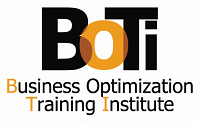May the 4th Industrial Revolution be with You, Part 5: ‘Money’s too Tight to Mention’ | Innovation Management

This article is the fifth in a series which takes an in-depth look at how the changes brought about by the advent of the 4th Industrial Revolution are playing out on the world stage and how these changes are literally revolutionising the way things are done both at home and in the workplace.
One small step by South Africa’s largest bank, one giant leap towards unemployment
In Part 3 of this series published in July, we discussed how the rise of digital banking posed a very real problem in South Africa for workers in the banking sector when Standard Bank, South Africa’s largest bank, announced in June of this year that it was set to close 104 of its branches.
Certain communities have suffered as a result of their branches being hacked from the system
The move was in line with the bank choosing to adapt its service offering to remain relevant to its customers in the face of stiff competition from digital banking alternatives such as the likes of Discovery Bank and Tyme Bank.
But, since then, the bank has closed 90 branches and although it maintains that the branch closures were a necessary step in favour of digitisation for the purpose of effecting progress, the bank’s CEO subsequently admitted that they got it wrong in that certain communities have suffered as a result of their branches being hacked from the system. Not to mention the very serious impact to the unemployment factor, with 1200 jobs at stake. The seriousness of a problem such as this deserves to be tackled as a major priority and cannot be swept under the carpet.
Biggest planned major banking strike in 99 years averted at the last minute
In protest of anticipated job cuts across the banking sector, in September of this year things started heating up when South Africa’s largest financial union, The South African Society of Bank Officials (SASBO), planned the biggest major banking strike the country has seen since 1920. However, South Africa’s Labour Court subsequently said that the planned strike was unlawful, supporting the application by Business Unity South Africa (BUSA) to interdict the strike action. Hence, in amongst the chaos, the strike was averted at the last minute.
Interestingly, in March of this year Ernst & Young conducted a banking sector survey which revealed that despite South Africa’s struggling economy, in 2018 the country’s big six banks yielded high profits with a return on equity (ROE) said to be at their highest levels since the global financial crisis of 2007-2008.
Banks also tend to spend huge sums of money on large marketing campaigns to incite brand loyalty, yet, bank rage is rife and currently there is a growing feeling of estrangement towards banks by ordinary clients. Taking human beings away from the coalface will only further exacerbate the problem.
A double-edged sword – how far forward can things go without eventually looping backwards?
When it comes to rolling out 4th Industrial Revolution technologies, banks closing their doors on their customers as well as their employees in favour of the digitisation of banking services comes under the spotlight when we pause to analyse just how far things will go before eventually looping backwards.
The implications are far reaching. Let us consider a few points:
Here, we encounter the proverbial double-edged sword whereby “you are damned if you do and damned if you don’t.” If we shy away from advances in technology we will be seen to be moving backwards. If we continue to embrace 4th Industrial Revolution technologies, certain sacrifices will need to be made.
The conveniences brought about by new technologies have adverse effects in more ways than one
Yet, embracing new technologies with all the conveniences that they have to offer has adverse effects in more ways than one. For instance:
Technology is not infallible – there isn’t much one can do if the lights go out
Technology is not infallible and is also subject to major breakdowns. For instance, South Africa’s electricity public utility, Eskom, is not shy to implement scheduled power outages through what has become known in this country as ‘load shedding’. Even with planned power outages, if you suddenly find that you cannot charge your cell phone, tablet or laptop and you need to perform an urgent financial transaction you may as well be living in the Dark Ages, since, despite the fact that technology has taken us further than most of us would have ever anticipated, there isn’t much one can do if the lights go out.
About the author
Helen Fenton, Senior Analyst, Business Optimization Training Institute
Business Optimization Training Institute (BOTI) is a Johannesburg based, Level 1 BBBEE business. As a Services and MICT SETA accredited company, we have trained thousands of individuals from over 650 companies and our extensive course offering consists of Short Courses, Soft Skills Training and Recognition of Prior Learning (RPL) Learnership Programs. In addition, we offer bespoke training programs designed to cater to specific business needs. Our training courses are focused on knowledge and skills transfer and we pride ourselves in being able to provide training anytime, anywhere across South Africa.
